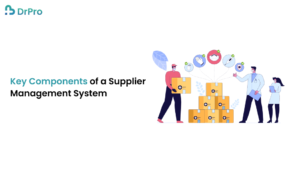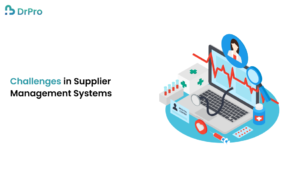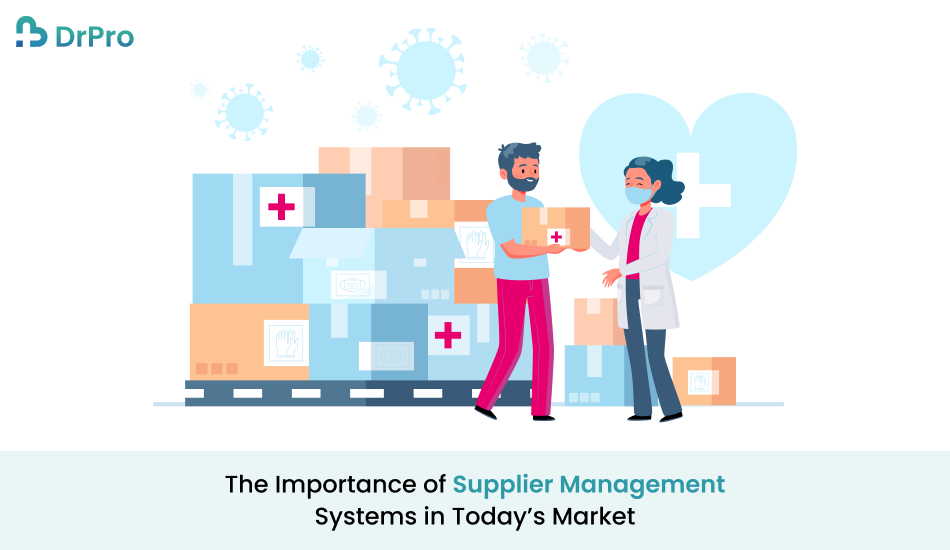The current world is very competitive and fast-moving hence supply chain management provides a solution to the problem of competitiveness. Supplier relationship management (SRM) systems are defined as being essential tools for managing supply chain processes since they offer tools to manage the relationships with suppliers, monitor their performances and compliance with the existing laws, and act accordingly. In the same way that companies face extensive supplier connections across industries, the value of well-structured supply chain management systems has dramatically increased.
Drawing on state-of-the-art theories, this article seeks to provide an understanding of how and why supplier management systems are important within the contemporary markets, the features that comprise it, the benefits that can be gained, problems that are associated with it, and the trends that are likely to occur in near future.
Introduction to Supplier Management Systems
The supplier management system can be defined as a formal method that enables an organization to manage all its supplier relations properly. Such systems assist in things like supplier relationship management, performance appraisal, compliance check, and contract review. They also help businesses ensure that they have a healthy and non-complicated relationship with their suppliers to add to organizational efficiency and minimal exposure to risks.
Supplier management systems are especially critical where a long chain of supply is evident in industries like manufacturing, retail, health, and the technology sector. With the increased adoption of more elaborate supply chain relationships, all the SMS options provide essential ways of making a supply chain function with due visibility, control, and quality in procurement.
Key Components of a Supplier Management System

Thus supplier management system efficiency comes from its capability to incorporate and support numerous processes. Key components include:
Supplier Onboarding
The selection of suppliers in an efficient manner for procurement also guarantees that the selected suppliers conform fully to the set standards of quality, price, delivery, and compliance of the organization. A structured system of collecting and verifying the supplier’s data is a reliable certification, financial position, and business permit.
Performance Monitoring
Measures of performance make it possible for organizations to assess the efficiency and reliability of suppliers. The general measurement returns include delivery, quality, responsiveness, and cost. Thus, the opportunity to use data analysis lets the organization find good suppliers and handle the bad ones.
Risk Assessment and Mitigation
There are always business risks affecting the suppliers, for example, geopolitical risks, credit risks, or ethical risks affecting operations. This is because a supplier management system factors in risk assessment tools that make it easy for any business organization to score potential risks and even come up with back-up measures.
Compliance and Regulatory Monitoring
SMS requires the suppliers to meet certain legal, environmental, and ethical requirements to minimize penalties for noncompliance or loss of reputation. This is especially important in industries that operate in a very regulated environment, Industries such as the production of health products and enhancement foods.
Contract Lifecycle Management
The issue of supplier management involves a proper way of making sure that all aspects of a contract are implemented as agreed, new deliverables collected on time, and terms of renewal/renewal prepared on time. SMS offers main contract depositories and main contracting notification systems.
Collaboration and Communication Solution
Effective communication between buyers and suppliers ensures alignment of expectations and facilitates problem resolution. Supplier management systems often include portals that enable seamless sharing of updates, feedback, and reports.
Benefits of Supplier Management Systems
Supplier management systems offer numerous benefits that contribute to operational efficiency, cost savings, and risk mitigation.
1. Enhanced Supplier Performance
Regarding evaluating supplier performance, it can be said that consistent evaluation is made possible by the use of SMS. It will also provide the missing link to encouraging top-performing suppliers and punishing underperforming ones through the provision of appropriate consequential measures.
2. Cost Optimization
Suppliers can become a weak link in the chain of procurement and supply and if not well managed; the following consequences are likely to happen: Supplier management systems help to find such cost reduction initiatives as supplier consolidation, contract renegotiation, or reduction of lead time.
3. Improved Supply Chain Transparency
Controlled data centers and real-time supply chain tracking provide enhanced visibility concerning the supply chains of a business. Transparency unearths the blockage of chains to enhance and locate the flow origins of the items as well as puritanical procurement.
4. Risk Reduction
Supplier management systems, for example, detect threats related to supplier bankruptcy, political unrest in the host country, or non-adherence to the laws. When risk is identified at its inception, managerial action means are taken to prevent disruption of business operations.
5. Regulatory Compliance
Environment management is becoming more and more challenging due to differences in regulations all around the world and within different industries. SMS also assures suppliers of compliance with all the prescribed standards thus protecting a business from compounding its problems through penalties and damaging its reputation.
6. Stronger Supplier Relationships
Effective supplier management systems enable partnership enabling efficient communication hence strong relationships. A result of such efforts is the establishment of long-term reciprocal business supplier relationships.
Challenges in Supplier Management Systems

While supplier management systems offer substantial benefits, organizations face several challenges when implementing and maintaining these systems:
1. Data Accuracy and Completeness
Supplier data can be said as one of the fundamental levers of the effective planning of SMS. In particular, businesses face several challenges, such as the limited availability of comprehensive and up–to–date information on multiple suppliers and the inability to efficiently monitor their compliance.
2. Integration with Existing Systems
In many organizations, there are usually different software solutions that are used for procurement, inventory, and finance. One disadvantage of adopting and implementing SMS lies in the technical integration of the system to other enterprise systems; which is complicated and prohibitive in terms of cost.
3. Supplier Resistance
It implies that some suppliers may oppose the adoption of new systems or share detailed performance information with the buyers because of a seeming loss of authority or mounting supervision from the buyers.
4. Cost of Implementation
Overall proper functioning of an effective SMS requires considerable capital outlay in technologies and training and changes in business processes. To small and medium-sized firms, these costs may represent a hurdle.
5. Global Supply Chain Complexity
When the suppliers are located in different regions, then there exist added challenges such as cultural, and time zone differences, and regulations.
Emerging Trends in Supplier Management Systems
Over the years, there have been new technologies and new requirements and demands that come into the business world, and supplier management software systems today are incorporating these. Key trends shaping the future of SMS include:
1. Artificial Intelligence and Machine Learning
Suppliers have massive data that can be processed by powerful AI systems to make pattern recognitions, risk predictions, and recommendations. For example, AI can plan demand changes, and suggest the best supplier decisions.
2. Blockchain for Transparency
Blockchain technology helps managers to control their transactions and supplier data, using a safe and transparent platform. This is especially useful regarding compliance with ethical standards of procurement and fighting fraud.
3. Sustainability Metrics
As sustainability becomes increasingly important in people’s lives and operations, SMS is adding ways to monitor suppliers’ stewardship. Nowadays, CG suppliers can stay ahead of the competition because businesses are focusing on their sustainable suppliers.
4. Cloud-Based Solutions
Platforms based on the cloud undergo scalability, and flexibility, and work remotely, which makes them appropriate for organizations that have a long supply chain. These systems also enable real-time updating of data and also enable other forms of team working.
5. Focus on Supplier Diversity
Various organizations are integrating SMS tools to support diverse supplier identification and their subsequent incorporation into organizations. Not only does this raise the level of social responsibility but also avoids the ‘groupthink’ type situation where everyone in the supply chain receives the same education and therefore comes up with the same idea.
Importance of Supplier Management Systems in Specific Industries
Supply management systems have different positions in different industries because each of them has its peculiarities and stakes.
Manufacturing
Thus, in manufacturing, SMS coordinates the delivery of raw materials so that productive delays are minimized. QM is used in performance monitoring and provides direction on how to maintain quality as well as where cost savings can be achieved.
Retail
Mobile communication as a tool is used by retailers to communicate with multiple suppliers, and ensure that there is adequate stock in the store. The above systems allow tracking of stock levels in real-time and assist in the formulation of flexible price models.
Healthcare
In healthcare, supplier management systems play a role in ordering medical supplies and pharmaceuticals that are most often necessary in hospitals, clinics, and care centers, all this while meeting regulatory requirements. Risk assessment assists in reducing disruptions with potential negative effects on the patients.
Technology
Manufacturers of technology goods harness sms for dealing with intricate supply chains on the hardware and software of technologies. Such systems assist an organization in enhancing the procurement process while observing the set laws on patents.
Conclusion
At DrPro supplier management systems today are not a luxury since globally interconnected markets and increased competition are observed. They are primarily solutions for effective supply chain management to minimize risks and cut costs. Due to the centralizing of supplier relations, SMS enables the organization to ease compliance with legal standards and ensure increased openness that leads to the improvement of supply relations.
In the light of continuing challenges that organizations experience as they progress through globalization, sustainability requirements, and technological disruption, supplier management systems will have the important responsibility of providing solutions to these challenges. Organizations that have implemented strong structured Solutions for SMS will stand to benefit from the change and realize long-term benefits.
FAQs
Q1. How does a supplier management system help in risk management?
A supplier management system encompasses prospects of risk factors, for example, supplier insolvency or changes in the political climate that make contracting countries unstable.
Q2. Can small businesses benefit from supplier management systems?
Yes, small businesses can benefit in several ways such as enhancing supplier relations, compliance way, and enhancing visibility of the supply chain, all this without having to invest a lot.
Q3. What are the key features to look for in a supplier management system?
Major components comprise supplier integration/enrollment, performance evaluation, risk rating, compliance, contract management, and live performance reporting.
Q4. How do supplier management systems contribute to sustainability?
Supplier management systems capture and monitor the environmental and social performance of suppliers to enable businesses to address their sustainable sourcing concerns and corporate social responsibility initiatives.
Q5. What challenges might companies face when implementing an SMS?
Some of the challenges include a high degree of implementation costs, integration problems, supplier opposition, and difficulties in dealing with the global supply chain. These are challenges that can be eliminated through proper planning and staff training.


